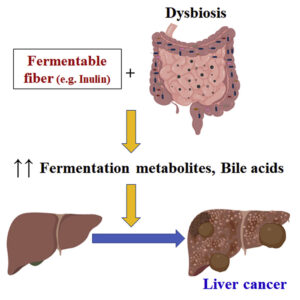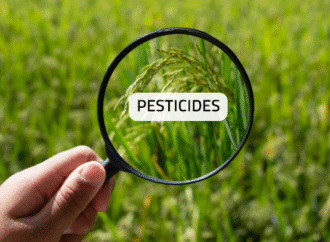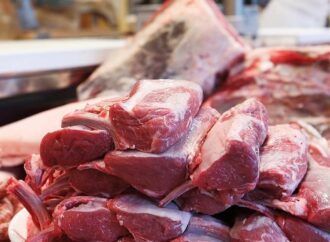When it comes to our dietary choices, we often focus on the benefits of fibre for digestive health. However, recent studies have shed light on a concerning connection between diets rich in refined fibre and an increased risk of liver cancer.
Understanding Refined Fibre and Liver Cancer Risk
a. The Role of Fiber in Digestive Health
Fibre is a vital component of a healthy diet, known for its ability to support regular bowel movements, control blood sugar levels, and aid in weight management. It is typically divided into two categories: dietary fibre and refined fibre.
b. Differentiating Between Dietary and Refined Fibre
Dietary fibre is found naturally in fruits, vegetables, whole grains, legumes, and nuts. It includes es sential nutrients and is associated with numerous health benefits. On the other hand, refined fibre is a processed form of fibre that is often added to processed foods and lacks the same nutritional value.
sential nutrients and is associated with numerous health benefits. On the other hand, refined fibre is a processed form of fibre that is often added to processed foods and lacks the same nutritional value.
c. The Link Between Refined Fibre and Liver Cancer
Recent research has shown that diets high in refined fibre may increase the risk of liver cancer. Here’s how this association arises:
- Insulin Resistance: Refined fibre has been found to contribute to insulin resistance, a condition in which the body’s cells become less responsive to insulin, leading to increased blood sugar levels. This chronic elevation in blood sugar can promote inflammation and damage the liver over time, potentially raising the risk of liver cancer.
- Obesity and Non-Alcoholic Fatty Liver Disease (NAFLD): Diets rich in refined fibre are often associated with a higher intake of processed foods and added sugars, which can contribute to weight gain and the development of NAFLD. NAFLD is a condition characterised by the accumulation of fat in the liver, and its progression can increase the risk of liver cancer.
- Gut Microbiota Alterations: Refined fibre lacks the prebiotic properties present in dietary fibre, which are essential for maintaining a healthy balance of gut bacteria. Disruptions in gut microbiota can lead to inflammation and impair liver function, potentially elevating the risk of liver cancer.
Maintaining a Liver-Friendly Diet
- Emphasise Whole Foods: Focus on consuming a diet rich in whole foods, including fruits, vegetables, whole grains, lean proteins, and healthy fats. These nutrient-dense options provide essential vitamins, minerals, and dietary fibre that support liver health.
- Opt for Complex Carbohydrates: Choose complex carbohydrates such as whole grains, legumes, and starchy vegetables over refined and processed foods. These choices provide a steady release of energy, helping to regulate blood sugar levels and reduce the risk of insulin resistance.
- Limit Added Sugars and Processed Foods: Minimise your intake of added sugars and processed foods, as they are often high in refined fibre and can contribute to weight gain, inflammation, and liver damage.
- Stay Hydrated: Drinking an adequate amount of water helps to flush toxins out of the body and supports optimal liver function.
Conclusion
While fibre is an essential part of a healthy diet, the type and quality of fibre we consume matter. Diets rich in refined fibre have been associated with an increased risk of liver cancer due to their potential to promote insulin resistance, contribute to obesity and NAFLD, and disrupt gut microbiota. To protect your liver health, prioritise whole foods, complex carbohydrates, and minimise your consumption of processed foods and added sugars. As always, consult with a healthcare professional for personalised dietary recommendations and regular screenings to monitor your liver health.
 Food Manifest
Food Manifest 



















Leave a Comment
Your email address will not be published. Required fields are marked with *